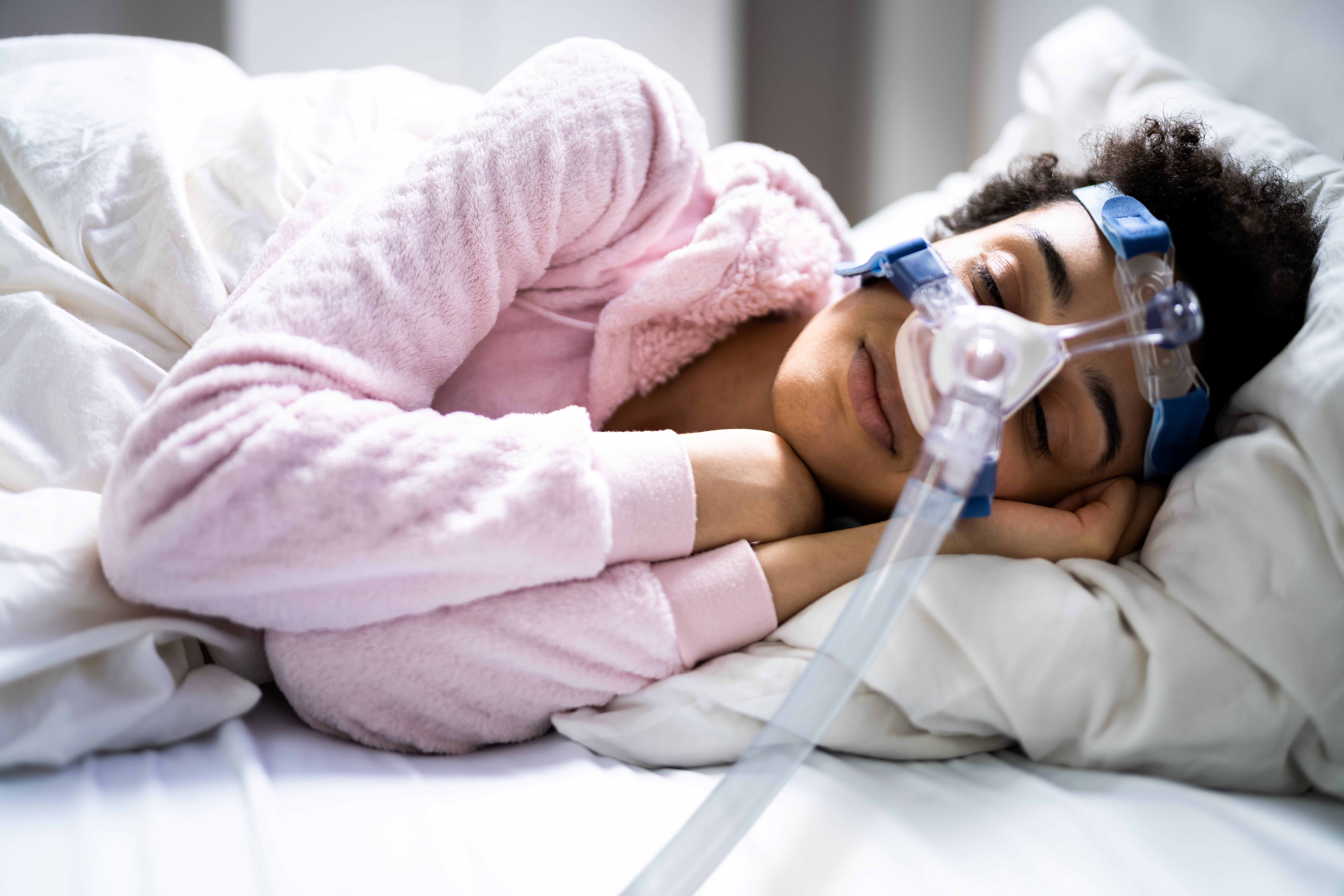What’s the Difference Between CPAP and BiPAP Machines?

Did you know that about 30 million people in America have sleep apnea? Sleep apnea can affect anyone, and there are many different treatment options.
One option is to get a breathing aid machine, like a CPAP or BiPAP. CPAP, or continuous positive airway pressure, and BiPAP, or bilevel positive airway pressure, machines work similarly but are NOT the same.
Do you know the difference?
In this blog, we’ll go through the similarities and differences between CPAP and BiPAP machines and which one is best for you.
What is a CPAP machine?
A CPAP machine has very similar parts to a BiPAP machine, and they both work to treat sleep apnea. With either machine, you will have the standard tube, face mask and headgear, and tabletop-sized machine beside your bed at night.
CPAP stands for continuous positive airway pressure, meaning that there is one precalibrated air pressure going throughout the machine to the user at any given time– no matter if they are inhaling or exhaling.
CPAP machines are the most commonly used and prescribed machines for sleep apnea and are typically given to patients that are recently diagnosed with sleep apnea.
What is a BiPAP machine?
A BiPAP machine is very similar to a CPAP machine, and both have the same parts. Each one works differently–and it’s all about air pressure!
BiPAP stands for bilevel positive airway pressure, meaning that there are different pressure levels set for inhalation and exhalation. BiPAP machines have more settings and flexibility compared to CPAP machines.
If you’ve had problems with a CPAP machine in the past, or have a more severe case of sleep apnea, maybe it’s time to try out a BiPAP machine.
Which machine is right for me?
While both machines offer many benefits and can be wonderful treatment options for sleep apnea, it’s important to talk to your doctor if you’re thinking about switching from a CPAP machine to a BiPAP or vice versa. The machines are both great for treating sleep apnea, but they can have a significant impact on your treatment if you switch to one without consulting your doctor first.
CPAP machines are typically prescribed to sleep apnea patients before a BiPAP machine is, and they can have longer adjustment times. BiPAP machines are also used in instances where the patient cannot tolerate CPAP treatment, but they must be prescribed and monitored by a sleep specialist.
As always, it’s important to consult your sleep specialist before getting a CPAP or BiPAP machine, or when switching between the two.
If you’re looking for a sleep center near you, HME Locations has you covered!
HME Locations | Finding Medical Equipment Near You!
Interested in finding out more about CPAP and BiPAP machines?
Looking for a sleep center near you?
HME Locations is your one-stop shop for all home medical equipment needs!
Use our online tools to find home medical equipment and sleep centers near YOU.
Questions? Don’t hesitate to reach out to us. We’re happy to help!
Want to read more?
Here are some blogs related to CPAP and BiPAP machines.
Preparing for Your Sleep Study - What to Expect
How to Combat CPAP Side Effects
Diagnosed with Sleep Apnea? What’s Next?
What Are The Different Types of Sleep Apnea Testing?
